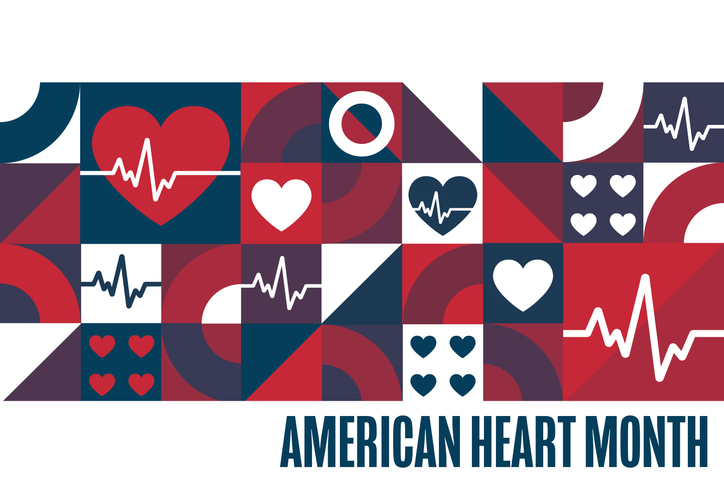February is American Heart Month—a time to focus on the importance of heart health, raise awareness about cardiovascular diseases, and take proactive steps toward better health. This annual observance is a gentle reminder for us to pause, reflect, and prioritize our heart’s well-being. Among the many conditions that affect heart health, vascular disease deserves special attention for its significant impact and often-overlooked symptoms.
This guide will cover everything you need to know about vascular disease, from understanding its types and risks to recognizing symptoms and taking preventive measures. By the end, you’ll be not only more informed but also inspired to take meaningful action for better heart health.
What is Vascular Disease?
Imagine the circulatory system as a network of highways, with blood flowing smoothly through a complex map of veins and arteries. Vascular disease occurs when these pathways become compromised, impeding blood flow and straining the heart. Over time, this strain can lead to serious health complications, including heart attacks, strokes, or amputations in severe cases.
Types of Vascular Diseases:
- Peripheral Artery Disease (PAD): A condition where plaque builds up in the arteries, restricting blood flow to the limbs and causing pain or cramping, especially in the legs.
- Chronic Venous Insufficiency (CVI): This occurs when veins in the legs cannot effectively return blood to the heart, leading to swelling, aching, or varicose veins.
- Aneurysms: Weak spots in blood vessels that balloon out and risk rupturing—most commonly in the aorta.
- Deep Vein Thrombosis (DVT): A dangerous blood clot that forms in a deep vein, usually in the legs, which can break off and cause a pulmonary embolism.
Understanding these conditions is the first step to recognizing their potential impact on your overall heart health.
Risk Factors for Vascular Disease
Although vascular disease can affect anyone, certain lifestyle and genetic factors significantly increase the risk. Recognizing these risks can empower you to make choices that reduce your vulnerability.
Lifestyle Risk Factors:
- Smoking: Damages blood vessels and accelerates plaque buildup.
- Sedentary Lifestyle: A lack of physical activity may contribute to poor circulation and weight gain.
- Unhealthy Diet: Diets high in saturated fats, cholesterol, and sodium elevate blood pressure and cholesterol levels.
- Diabetes: High blood sugar can damage blood vessels over time.
Genetic Risk Factors:
- Family History: If vascular disease runs in your family, your own risk may be higher.
- Age: The risk increases as you age, particularly over 50.
- Gender: Men are generally at higher risk, though post-menopausal women are more likely to develop specific types of vascular issues.
Recognizing the Signs and Symptoms
Early detection is critical for effectively treating vascular disease; knowing the warning signs can make all the difference. Look for the following indicators:
- Cramping or leg pain while walking (often relieved by rest).
- Swollen, achy legs or varicose veins.
- Numbness, weakness, or coldness in the extremities.
- Changes in the color of your skin or sores that don’t heal.
- Sudden chest pain, shortness of breath, or difficulty breathing (potential signs of a blood clot).
If you experience any of these symptoms, consult a healthcare professional promptly. Early intervention can prevent complications and improve your quality of life.
Prevention Strategies to Keep Your Heart and Vascular System Healthy
While some risk factors are beyond our control, there are many proactive measures you can take to maintain healthy blood flow and support your heart’s health.
Lifestyle Changes:
- Stay Active: Regular physical activity, such as brisk walking, cycling, or swimming for at least 30 minutes a day, strengthens your cardiovascular system.
- Eat a Heart-Healthy Diet: Include plenty of fruits, vegetables, whole grains, lean proteins, and healthy fats while reducing processed foods and added sugars.
- Quit Smoking: Seek support and resources to quit smoking—it’s one of the best gifts you can give your heart.
- Manage Stress: Incorporate mindfulness practices like yoga, meditation, or deep breathing into your routine to support overall health.
Medical Interventions:
If lifestyle changes aren’t enough, medical interventions can play a key role in prevention. Your doctor may recommend medications to manage high blood pressure, cholesterol, or other underlying conditions. Regular check-ups and screenings can also detect potential issues early.
Resources and Support for Vascular Health
Taking care of your vascular health isn’t a solo endeavor—a wealth of resources are available to help you on your heart health journey.
- Visit The Vascular Care Group at one of our New England locations for expert treatment tailored to your needs, whether addressing peripheral artery disease or chronic venous insufficiency. Our personalized approach ensures you’re well-equipped to take control of your vascular health.
- Explore support groups or online communities to connect with others who understand your experiences. Sharing tips, advice, and encouragement can make all the difference.
- Utilize national organizations like the American Heart Association for educational materials, events, and tools to support healthy living.
Take Charge of Your Health This American Heart Month
Your heart works tirelessly to support you every second of every day. Isn’t it time to show it some love in return? Take this American Heart Month as an opportunity to assess your lifestyle, understand your risk factors, and prioritize your vascular health.
With early detection, supportive resources, and actionable lifestyle changes, you have the power to strengthen your heart and live a healthier, fulfilling life. Take that first step toward better heart health in New England. Visit The Vascular Care Group to schedule a consultation and gain expert guidance on your path to vascular wellness.
Because nothing should stand in the way of a healthy, thriving heart.
